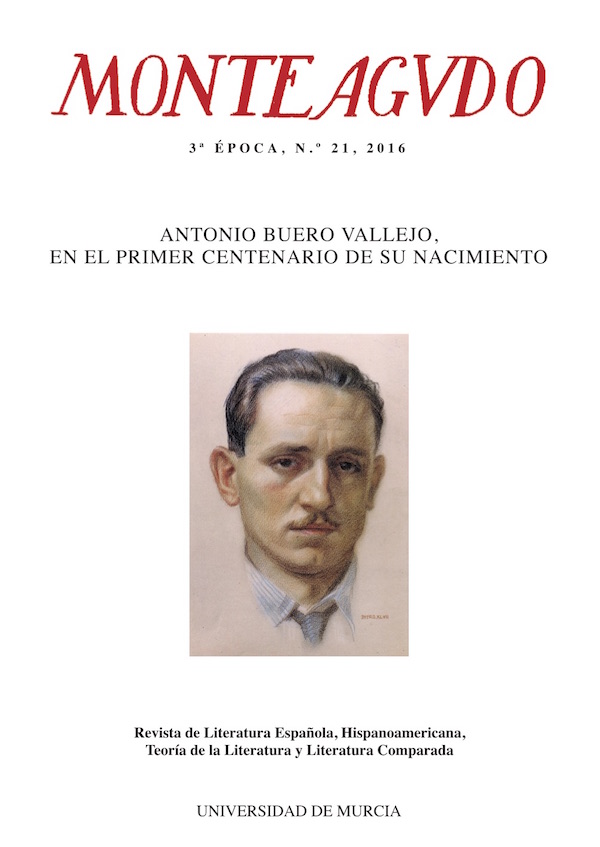La libertad en Buero Vallejo
Abstract
After an adolescence filled with the trauma of the Civil War, the seven years spent in prison left a lifelong imprint on Antonio Buero Vallejo’s character that manifests itself through his theater. The blind people of En la ardiente oscuridad and the neighbors of Historia de una escalera are also captives of their own symbolic prisons. These prisoners, who represent all of us, are ruthlessly condemned and only a complete awareness of their lucidly accepted condition can make them free. Only this kind of internal freedom can be the foundation for the ethical dignity that is always present in Buero’s plays: and encapsulated within this dignity is the permanent sense of hope that lies at the heart of his tragedies.
Downloads
-
Abstract649
-
PDF (Español (España))381
The works published in this journal are subject to the following terms:
- The Publications Service of the University of Murcia (the publisher) retains the property rights (copyright) of the published works, and encourages and allows their reuse under the license of use indicated in point 2.
© Publications Service, University of Murcia, 2011
- The works are published in the electronic edition of the journal under a Creative Commons Attribution-NonCommercial-NoDerivatives 3.0 Spain license (legal text). They may be copied, used, distributed, transmitted and publicly displayed, provided that: i) the authorship and the original source of their publication (journal, publisher and URL of the work) are cited; ii) they are not used for commercial purposes; iii) the existence and specifications of this license of use are mentioned.







